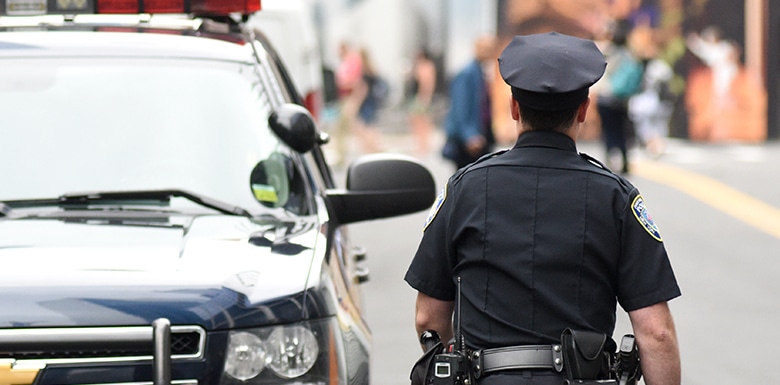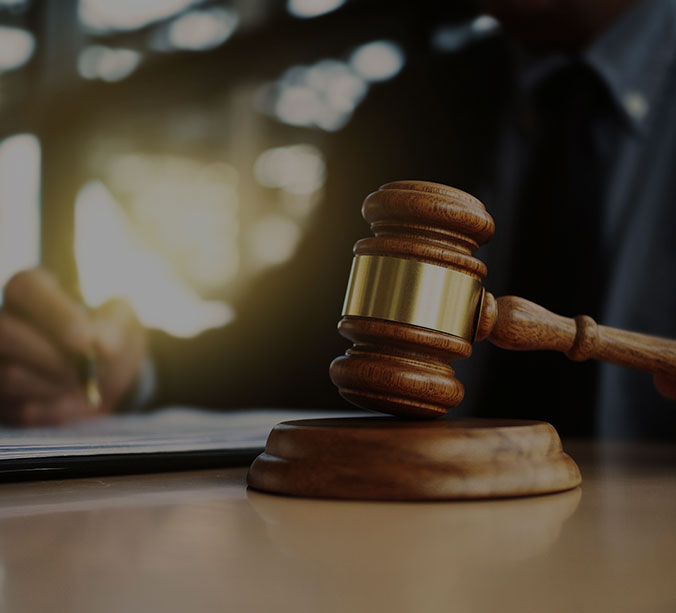
Being arrested can feel like your world is crumbling. But remember, not all arrests end in conviction. From police officers to prosecutors and even forensic technicians, everyone involved in investigations can make mistakes. And when they do, it can be a game-changer for your case.
But it often takes an experienced criminal defense attorney to identify these mistakes and help get your case dismissed. Here, the Philadelphia defense lawyers at Fienman Defense will dive into the most common law enforcement errors and how they might help you fight your charges.
Police Errors That Could Lead to a Dismissal
When you’re facing criminal charges, every detail matters. Even the smallest mistake by law enforcement could be the key to getting your charges dismissed. But identifying these errors isn’t always straightforward.
Spotting such crucial mistakes requires a sharp eye and a deep understanding of the legal process. This is where a skilled attorney comes into play. An experienced criminal lawyer knows what to look for and how to leverage errors to your advantage. By meticulously reviewing the details of your arrest and how the evidence was obtained, a defense attorney can uncover any missteps that might be grounds for dismissal.
1. Lack of Reasonable Suspicion
A lot of criminal charges start as traffic stops. But before the police can stop you, whether on foot or in a vehicle, they must have “reasonable suspicion” that you are involved in criminal activity. This requires specific and articulable facts—not just a hunch or feeling. Any evidence collected could be challenged if an officer pulls you over without this reasonable suspicion.
Imagine you’re driving late at night, returning home from work. An officer sees you and decides to pull you over because it’s late and assumes anyone out at that time must be up to no good. If the officer did not observe erratic driving or other behavior that would justify a stop, they likely lacked reasonable suspicion.
Suppose you were arrested for DUI or found with drugs. In that case, your attorney could argue that the stop itself was unlawful, suppressing any evidence obtained, which could get your charges dismissed.
What Can an Attorney Do About a Lack of Reasonable Suspicion?
An experienced attorney will carefully review the details of the stop and challenge the legality if reasonable suspicion is not present. This can often be a critical factor in getting charges dismissed early in the legal process.
2. No Probable Cause for Arrest
Probable cause is a higher standard than reasonable suspicion. To lawfully arrest someone, police must have probable cause to believe that person committed a crime. This requires more concrete evidence than mere suspicion.
Consider you’re at a crowded store, and an item goes missing. A witness vaguely describes someone “wearing a blue shirt,” and you happen to be wearing one. The police arrest you for theft based solely on this vague description. This lacks the necessary probable cause since many people were wearing blue shirts. A skilled lawyer could argue that the arrest was made without sufficient evidence, potentially getting the charges dropped.
How Attorneys Show There Was No Probable Cause
Your lawyer will examine the circumstances of your arrest to ensure probable cause exists. If not, they can file motions to suppress any evidence obtained because of the unlawful arrest, often leading to a dismissal.
3. Unlawfully Obtained Evidence
The Fourth Amendment protects you from unreasonable searches and seizures. This means police need a warrant or a clear exception (like your consent or exigent circumstances) to search your property or person. Any evidence obtained in violation of this rule may be inadmissible in court.
Let’s say you’re pulled over for a minor traffic violation, like a broken taillight. The officer decides to search your car without your consent, without probable cause, and without a warrant. During the search, they find a gun. Because the search was illegal, your attorney could file a motion to suppress the firearm as evidence. If the judge agrees, this key evidence would be excluded, and your charges could be dismissed.
How Lawyers Get Unlawful Evidence Thrown Out
Your lawyer will scrutinize how the evidence was obtained and challenge any illegal searches. This can lead to the suppression of critical evidence and a subsequent dismissal of your charges.
4. Mishandled Evidence
For evidence to be admissible in court, it must be handled appropriately and documented from the moment it is collected until it is presented in court. This is known as maintaining the “chain of custody.” Any break in this chain can call the evidence’s integrity into question.
Suppose you were arrested for drug possession, and the evidence (like a bag of drugs) was not properly logged or was tampered with. Or perhaps the evidence was mixed up with another case’s evidence. Such mishandling can significantly weaken the prosecution’s case. Your attorney could argue that the evidence is unreliable, leading to it being excluded from your case.
How Attorneys Find “Chain of Custody” Errors
An attorney will carefully review all evidence-handling procedures and documentation. Any mishandling can be grounds for challenging the evidence, which could result in a dismissal of charges.
Things That Help Get Charges Dismissed
While police errors are a significant factor in getting a case dismissed, several other elements can also lead to the dismissal of your charges.
- Evidentiary Issues: Weaknesses in the prosecution’s evidence can be grounds for dismissal. If the prosecution lacks sufficient evidence to prove your guilt beyond a reasonable doubt, or if a key witness is unreliable, your attorney can argue that the case should not proceed to trial.
- Establishing an Alibi: Providing credible evidence that you were somewhere else when the alleged crime occurred could lead to your charges being dismissed. An effective alibi might involve surveillance footage, credit card transactions, or witness statements proving your location during the crime. However, it’s important to note that the prosecution might challenge your evidence even with a strong alibi, meaning you could still face trial.
- Plea Negotiations: Your lawyer can negotiate with the prosecutor to reach a mutually agreeable outcome before trial. In some cases, this might involve pleading guilty to lesser charges in exchange for dismissing more serious charges. Alternatively, the prosecutor may agree to drop charges in exchange for restitution payments, community service, or other conditions.
- Diversion Programs: These programs, like ARD, offer an alternative to traditional criminal proceedings, focusing on rehabilitation rather than punishment. If you’re eligible and complete a diversion program, your charges could be dismissed, leaving you without a criminal record. This can positively impact your future employment, housing, and educational opportunities.
- Cooperation & Credibility: Showing that you have been cooperative throughout the legal process and maintaining credibility in court can influence the prosecutor’s decision to dismiss charges. Being forthright, respectful, and listening to your attorney’s advice can go a long way in legal negotiations.
How a Criminal Defense Lawyer Can Help
Navigating the legal system alone is daunting. A criminal defense attorney can provide invaluable assistance by:
- Investigating Your Case: An attorney will look into every detail of your arrest and charges to identify any mistakes or weaknesses.
- Filing Motions: They can file motions to suppress evidence or dismiss charges if there are grounds to do so.
- Negotiating with Prosecutors: Lawyers often negotiate with prosecutors to reduce or dismiss charges based on the circumstances of the case.
- Representing You in Court: If your case goes to trial, having a knowledgeable attorney can make all the difference in your defense.
Remember, just because you were arrested doesn’t mean you’re guilty. Mistakes happen, and they can work in your favor.
Read More about Police Errors, Misconduct & Dismissals
- PA Pretrial Motions: Motion to Review Police Personnel File
- Police Conduct Continues to be a Problem in Philly
- Are Pennsylvania State Police Troopers Conducting Illegal Searches?
- The Pros and Cons of Police Body Cameras as Evidence in Pennsylvania
- Case Study: Fierce Defense Wins in Unconstitutional Traffic Stop Case
- The Art of a Successful Defense – A Guide for Reductions, Dismissals & Winning in Court
Looking to Get Charges Dismissed? Contact Fienman Defense
At Fienman Defense, we’re committed to protecting your rights and fighting for the best possible outcome in your case, including getting your charges dismissed. Whether it’s challenging the evidence against you, negotiating with prosecutors, or exploring diversion programs, an experienced Philadelphia criminal defense attorney is here to guide you.
Submit your details online or call (215) 839-9529. for a free initial consultation. Attorney Michael Fienman will discuss your situation and how he can help.
Attorney Michael H. Fienman represents clients in criminal and traffic matters across Philadelphia, Montgomery, Bucks, Delaware, and Chester counties. As an experienced local attorney, he is a zealous advocate. Attorney Fienman is licensed to practice before the Supreme Court of Pennsylvania, the Supreme Court of New Jersey, the US District Court for the District of New Jersey, and the US District Court for the Eastern District of Pennsylvania.
View All Blogs
